Recently, I have been engrossed in Seth Klein’s book A Good War, which details how Canada, currently on track to fail its environmental action goals, can still pull together to achieve the necessary carbon reductions and societal transformations to provide a good example for other nations, prevent further environmental destruction, and repair some of the damage that has been done. Tremendous waves of pain, sadness, and helplessness washed over me as I read of the piecemeal policies, the kowtowing to industry, the “new climate denialism” that pervades the upper strata of our government.
I imagine myself – standing in the centre of an ancient forest, watching as the grandfathers and grandmothers tower above, rustling their leaves and needles, their trunks hosting unimaginable diversity of lichens, mosses and insects. The soil below teeming with roots and fungal hyphae, whispering amongst themselves in a language we have yet to consciously understand. The soil is filled with mushrooms, mosses, footsteps and pawprints, bacteria and stardust, seeds, and stories. And then, it begins to disappear around me – the gentle wind gusts above turn the giants to dust, snip the invisible networks, quiet the sounds and smells of growth and decay. All that is left – a blue sky, slowly filling with smoke, and turning the sun red…
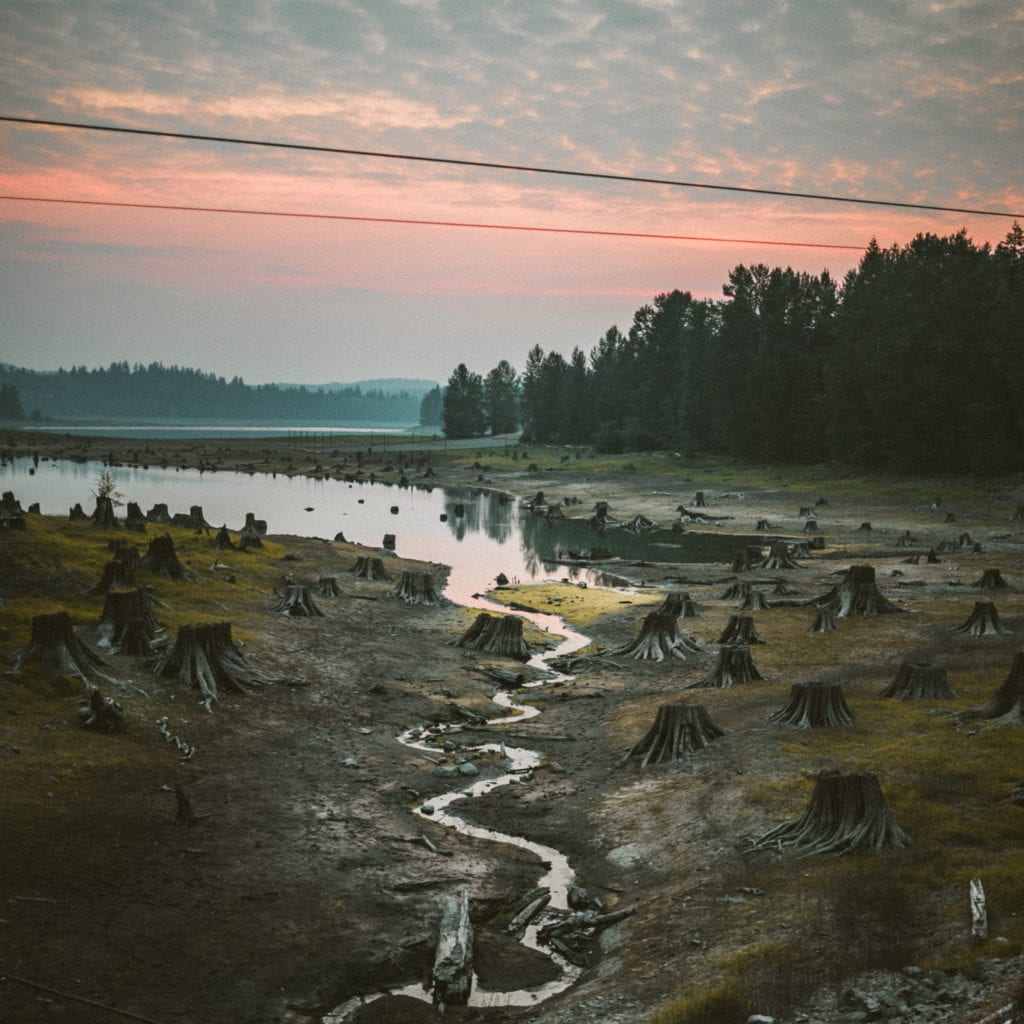
Of course, I grieve for these losses, and I grieve for the people who have experienced them, are experiencing them, and will continue to experience them as the situation worsens. And, as a human, I grieve for myself. I fear for the suffering my loved ones and I will endure as topsoil erodes and famine strikes, as wildfires rage, as the climate tips further towards the uninhabitable-for-humans side of things.
Tremendous waves of pain, sadness, and helplessness washed over me as I read of the piecemeal policies, the kowtowing to industry, the “new climate denialism” that pervades the upper strata of our government.
So… How to stay positive when it all looks so bleak? Well, it is not a choice for me; if I am not hopeful, then I think… I will probably be swept up by the nauseating waves of doom that buffet me, and I will drown in heavy depths of learned helplessness. Or I may simply be blown away like a bit of fluff and disappear into the smoke.
Practicing Buddhism has helped me come to terms with the situation in a nuanced way, and, more importantly, has provided me a community of people that share similar values, with whom I can practice, discuss, and take action.
Early in my practice, I asked “what the hell is the point of all this sitting around? What use is Buddhism if I’m sitting here blissing out while the world burns?” But isn’t “being useless” precisely the antithesis of what our hyper-productivity-focused economic system would want? Ultimately, sitting does plenty of good if my practice can give me the strength and resolve to continue taking climate action, whatever that may be, without attaching myself to any specific outcome. When I sit, I let go of the world, of my hopes and aspirations, of my fears. Everything is exactly as it is in that moment and will be so forevermore. I remember that I am part of the grand flow of everything: a grain of sand in the river, a dandelion seed on the wind.
Practicing Buddhism has helped me come to terms with the situation in a nuanced way, and, more importantly, has provided me a community of people that share similar values, with whom I can practice, discuss, and take action.
When I rise after my chanting, I re-enter the world and I remember that I am powerful, and that, just like the dandelion seed, I can fill a field with sunny flowers if I just take root. These realities exist simultaneously within me, albeit uneasily. Thus, my actions towards the reduction of suffering and the bettering of the environmental situation are at once completely meaningless, and gravely important. Their ultimate outcome is completely unknown to me, and will necessarily contain elements of suffering for some, and benefits for others. But I can’t live if I don’t act, because I took a vow – for better or for worse – to save all beings. Of course, there is plenty of daydreaming, mind-wandering, answering emails, and so forth in my meditations as well.
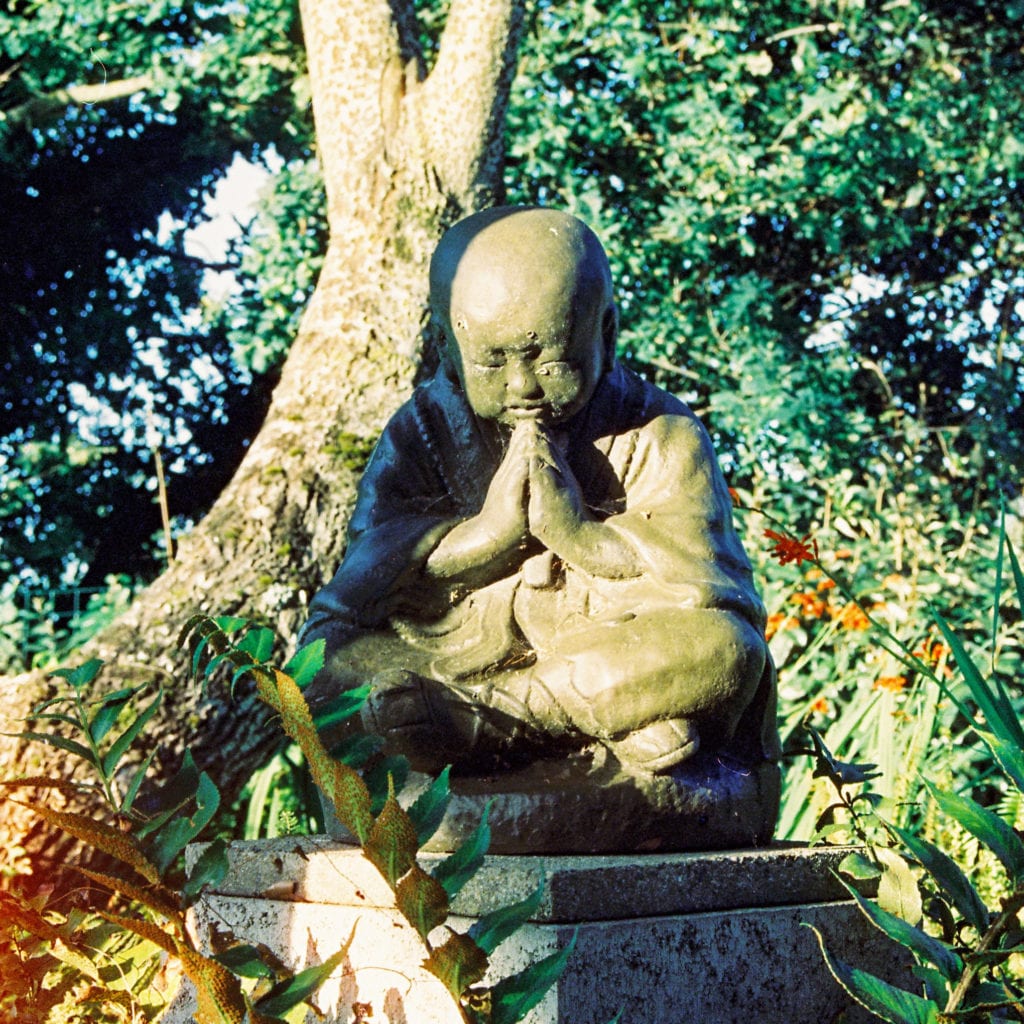
I also hold in balance the knowledge that, while individuals are responsible for their actions, and must be held accountable for the damage that they wreak on the planet – I am speaking here of politicians, industry leaders and CEO’s, heads of media companies, and the like – they are also simply enacting our “ancient, twisted karma,” (from the Repentance Chant) or, more clearly, the values and behaviours that society has collectively instilled in us. Although there are some people out there onto whom I wish I could really let out all my rage for the ignorance, the stupidity, the greed, the deplorability, the senselessness, and short-sightedness of their actions, I have learned to accept this anger just as any other emotion. If these things don’t make you angry, are you even paying attention? I recognize that blame and hatred will lead to a sapping of my strength, so I aim to sublimate my anger into bold and compassionate actions.
In Mountain Rain’s Engaged Buddhist Practice community, we take our vows off the cushion and into the world. In this collective, we are strengthened and supported, and I feel like I am “actually doing something,” instead of just talking. We are just getting started though – setting up goals and aims, signing petitions, organizing plastics audits, and sometimes sharing our feelings of grief. Fundamentally, in the words of Zenju Earthlyn Manuel, “we are together in the confusion and challenge of living awake.”
With my loved ones, I also attend protests, hold space, educate myself, and tend to the garden. Nonetheless, I often feel like I am not doing enough. That is currently the most pernicious negative thought I have, and the question that makes me cry is “when I die, will I feel like I did everything I could?” Only time will tell. For now, I take that thought into account, but keep it at arm’s length. Clearly, I am calling on myself to do more (but maybe not calling in the kindest way), and I know that I can do more. After all, I have started and kept a meditation habit for all this time! That is quite the achievement for me, I think. I set goals, I make progress, I make mistakes, I look back on successes and lessons. And, as we are a collective, each member’s actions, big or small, contribute to the greater cause.
I can’t live if I don’t act, because I took a vow – for better or for worse – to save all beings.
This greater cause lives, currently, in my imagination. I find myself, once again, at the site of that vanished forest. The sky begins to clear of smoke and pollution as we transition away from the extractive industries, as bold, passionate, and diverse young people lead us through the essential energy and societal transitions that we considered impossible only years before. I see the succession of the forest, first from meadow, to young trees and shrubs. Plants, fungi, wildlife return, and humans, too, come to repair our relationship with our distant cousins. As columns of trees rise higher, above a world forever changed, they hold within them our difficult lessons, and pass them on to future generations.
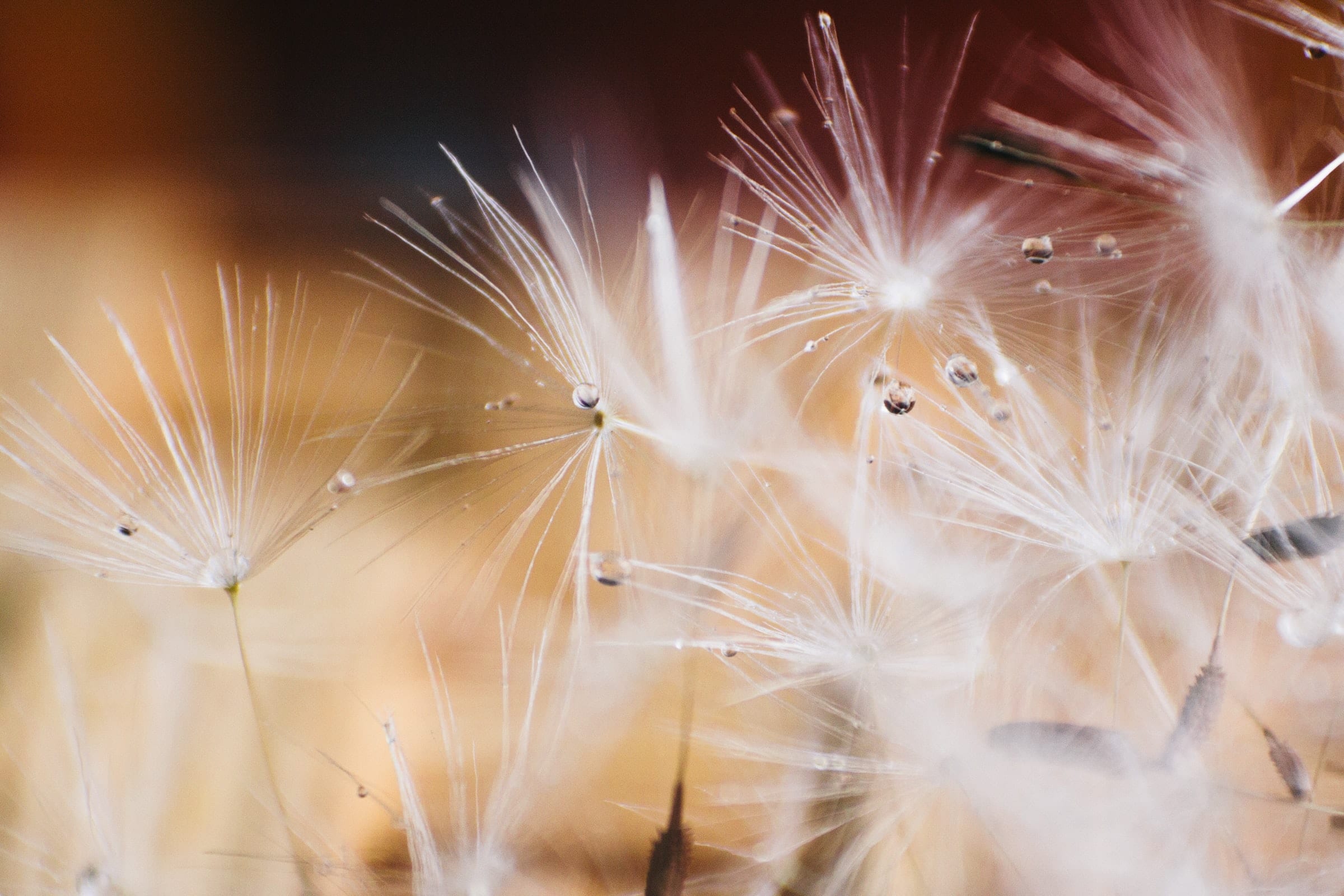
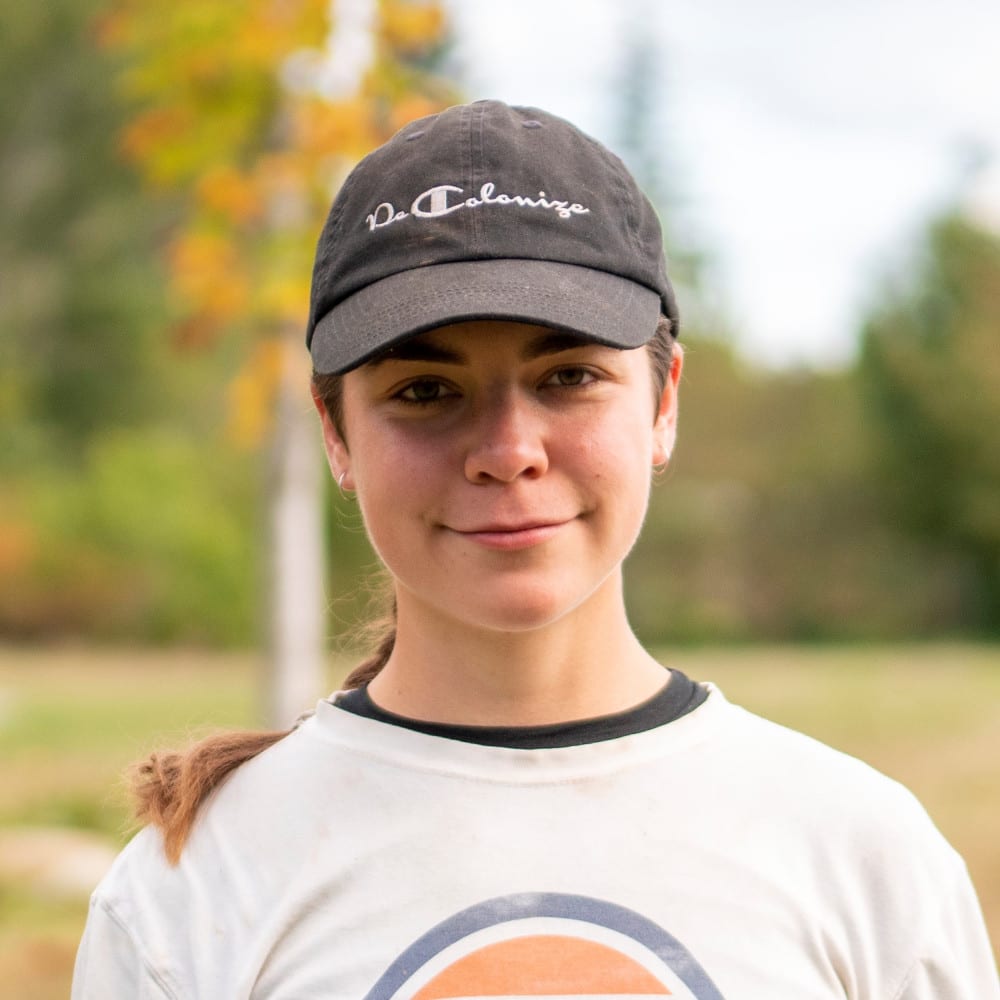


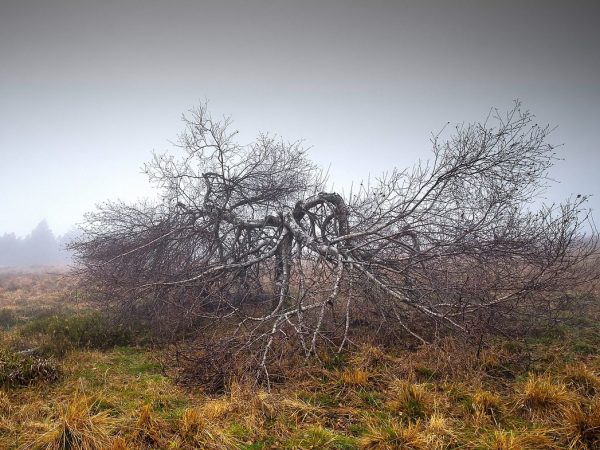

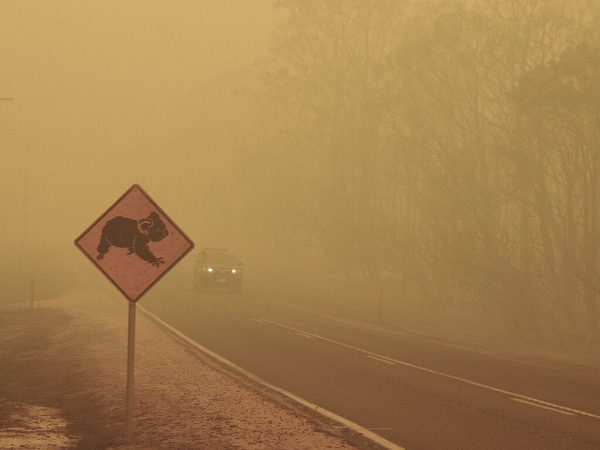

One Response
Such a powerful, honest, refreshing piece. I feel so similarly. I appreciate the clarity and perspective this writing brings to the question I ask myself often…
How (do I) stay positive when it all looks so bleak?
Thank you, Evguenia, for your wisdom.